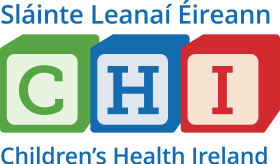Child development & neurodisability
Available locations:
Neurodisability is the field of medicine concerning the management of children and young people with disabilities relating from a health condition that they were born with (congenital) or that they developed over time (acquired).
Our team of paediatricians, specialist nurses, and administrative support provide medical care for children with developmental disorders and disabilities.
All clinics in our department are consultant led with support from team doctors and nurses. The appointment will include a medical history and examination. Further investigations e.g. blood test or x-rays may be completed.
Contact us
To find out more about this service please contact
General enquiries:
Tel: +353 (0)1 4096130
opd@olchc.ie
General enquiries:
The secretary for the Neurodisability service can be contacted through Temple Street Switch 01-8784200.
Nursing
Direct Line: (01) 414 3640
Email: neurodisability.nurse@tuh.ie
Secretaries
Barbara Oak, Secretary to:
Prof. McDonald, Dr. Mahony & Dr. Collins
Direct Line: (01) 414 2671
Grainne Power, Secretary to:
Dr. Curtis & Dr. Balfe
Direct Line: (01) 414 4823
Our services
Our clinics include;
This clinic supports children who have multiple medical needs associated with their disability. This may include review of growth and nutrition, safe feeding, gastrointestinal issues, bone health, management of motor disability, epilepsy, pain, chronic respiratory problems and sleep. This clinic is supported by specialist nursing and dietetics.
This clinic provides assessment for infants and children where there is a concern about motor development.
This clinic provides a medical assessment for children who have received a diagnosis such as autism, intellectual disability or global developmental delay. The appointment will focus on your child’s health needs, and consider if medical tests are required. We liaise with community services, including primary care or network disability teams. These teams are responsible for assessment and intervention.
Children with physical disability frequently require orthopaedic review. This clinic provides a joint assessment involving the child’s paediatrician, local physiotherapist and a consultant orthopaedic surgeon. Children who attend this clinic are already known to our service.
This clinic provides multi-disciplinary assessment and review for children with neuromuscular disorders. This clinic is supported by medical subspecialists, therapists and dedicated nursing. Each child will see the subspecialists relevant to their condition, for example cardiology or orthopaedics.
This clinic meets the healthcare needs of children with Down Syndrome. It is supported by paediatrics and nursing. We liaise with community services, including primary care or network disability teams. These teams are responsible for assessment and intervention
This clinic provides a medical assessment for children who are Deaf/hard of hearing. Medical tests to help determine the cause may be completed.
Meet the team
-
Consultant in Community Child Health
-
Consultant in Neurodisability
-
Consultant in Community Child Health
-
Consultant in Neurodisability
-
Consultant in Neurodisability
-
Consultant in Neurodisability
-
Consultant in Neurodisability
-
Consultant in Neurodisability
-
Consultant in Neurodisability
-
Consultant in Neurodisability
-
Consultant in Neurodisability
Page contents
On this page you will find information about:
Resources for parents and families
Middletown Centre for Autism – All island centre established by the Department of Education to promote excellence in the education of children with an ASD. They provide webinars and parental education courses.
As I Am – Ireland’s national autism charity and advocacy organisation
Autism Speaks - Large US autism advocacy organisation
Cerebral Palsy Parent Info Sheet: Royal Children’s Hospital Melbourne
Hemihelp UK: Advice and support for families with children with hemiplegia
Cerebral Palsy Alliance : Australian network of services for children and adults with CP
Hip Surveillance Guidelines: American Academy for CP and Developmental Medicine
Saliva Control in Children : Royal Children’s Hospital Melbourne
For healthcare professionals
We accept referrals from any healthcare professional who has assessed a child, including GPs, community medical doctors, and therapists.
It is important that any assessment reports or letters from other doctors or healthcare professionals are sent to us along with the referral.
- Children with comlex medical needs related to their disability
- Children presenting with significant developmental difficulties within the first two years. The referrer should also refer to local Children’s Disability Network Team (CDNT) as this is the service responsible for providing early intervention
- Children with an established neurodevelopmental diagnosis (e.g. Autism, intellectual disability), many of whom require a paediatric assessment
- Children with neurodevelopmental disorders presenting with medical comorbidities (e.g. epilepsy, feeding disorders, sleep difficulties)
- Children with established neurodevelopmental disorders where continuing medical surveillance is necessary. (e.g. Rett syndrome, Down syndrome)
- Children who are Deaf/hard of hearing are referred from audiological services for investigation
- Children presenting with isolated speech and language delay should be referred to Primary Care speech and language therapy (SLT)
- Children for whom there are concerns regarding behaviour including ADHD should be referred to their local Primary Care Psychology service or CAMHS. If the child is in school and there are concerns regarding attention the school should be asked to consider a National Educational Psychology Service (NEPS) assessment.
- School children with a specific learning difficulty (e.g. dyslexia) should be assessed through NEPS.
- Children in whom there are concerns regarding dyspraxia/DCD who have not already been seen by an Occupational Therapist should be referred to Primary Care OT. Following an OT or Physiotherapy assessment, a referral can be made to the general paediatric department.
- Children in whom there are concerns regarding head size/shape, growth or constipation should be referred directly to general paediatrics.
